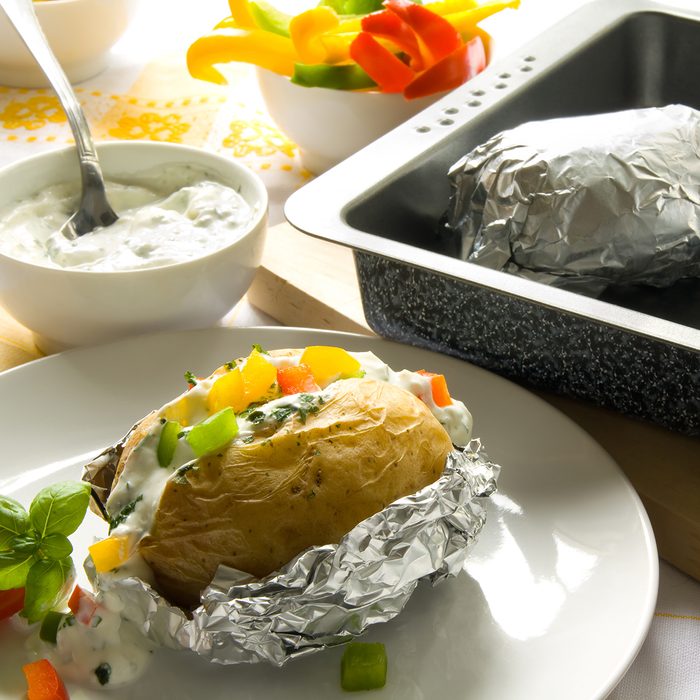
Recycle: Aluminum Foil
It’s easy to forget that aluminum foil is recyclable. But aluminum can be recycled almost infinitely; the metal is simply re-melted and transformed into new aluminum materials. Go ahead—use aluminum foil for all kinds of things around the house!
Before disposing in the recycling bin, be sure to clean any food particles off your aluminum foil or disposable aluminum cookware.
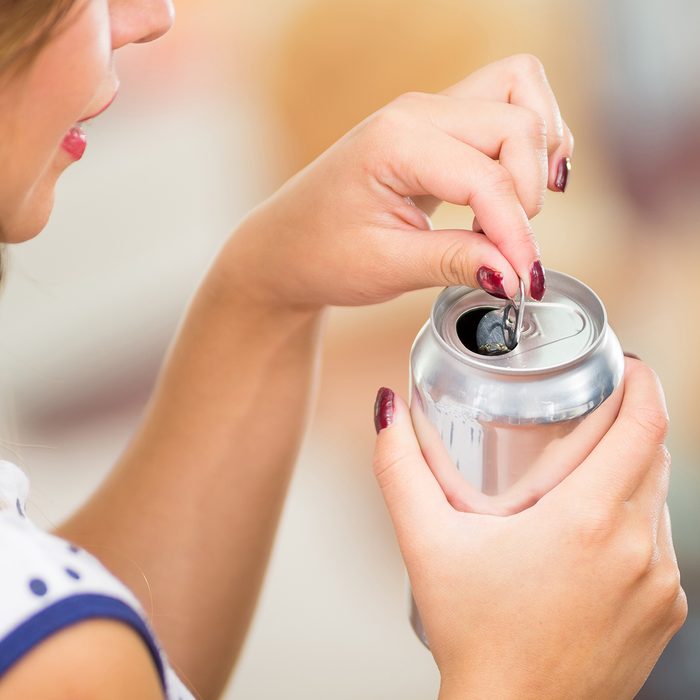
Recycle: Aluminum Cans
Don’t throw your soda cans in the garbage because they are 100% recyclable. In fact, once a can is put in the recycling container, the turnaround time is only 60 days until it’s on the shelf again as a different aluminum can.
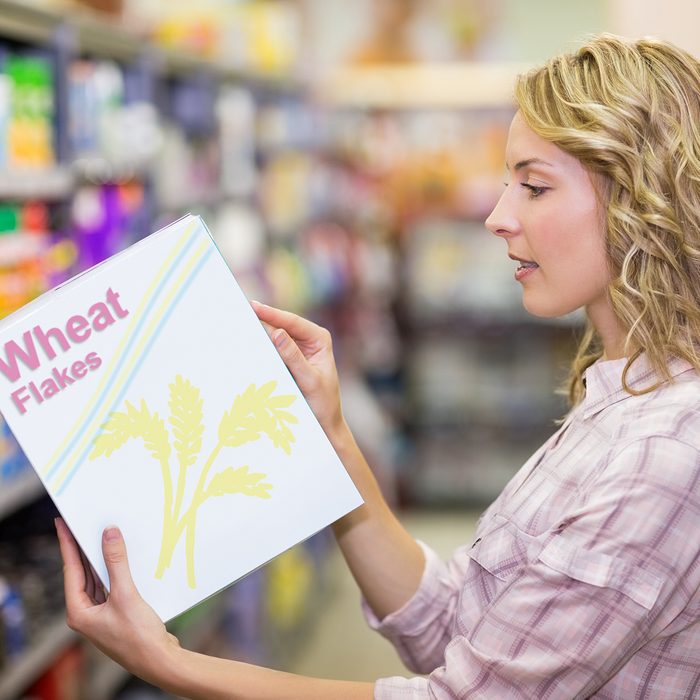
Recycle: Cereal Boxes
Because cereal boxes are made of paperboard, they are recyclable. Before tossing a box in the recycle bin, remove the inner cereal bag and dump out any stray cereal that got caught in the bottom of the box. Recycled paperboard should be clean and free of any food waste. Find a cereal that’s good for you, too.
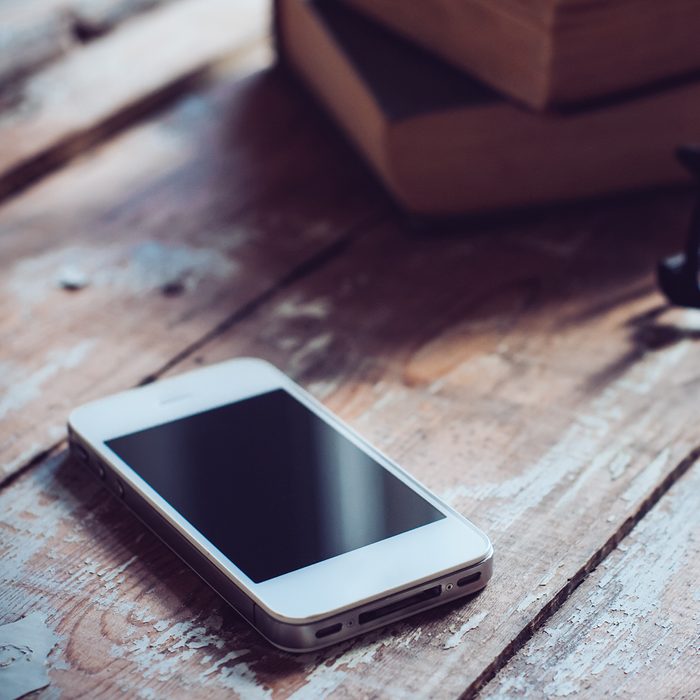
Recycle: Cell Phones
It’s true! Cell phones are made of copper, plastic and other valuable metals—which can be extracted and recycled. Just remember that cell phones cannot be recycled through your curbside pick-up. Return the phone to your service provider, donate it to a charity or find a service that offers electronic recycling in your area.
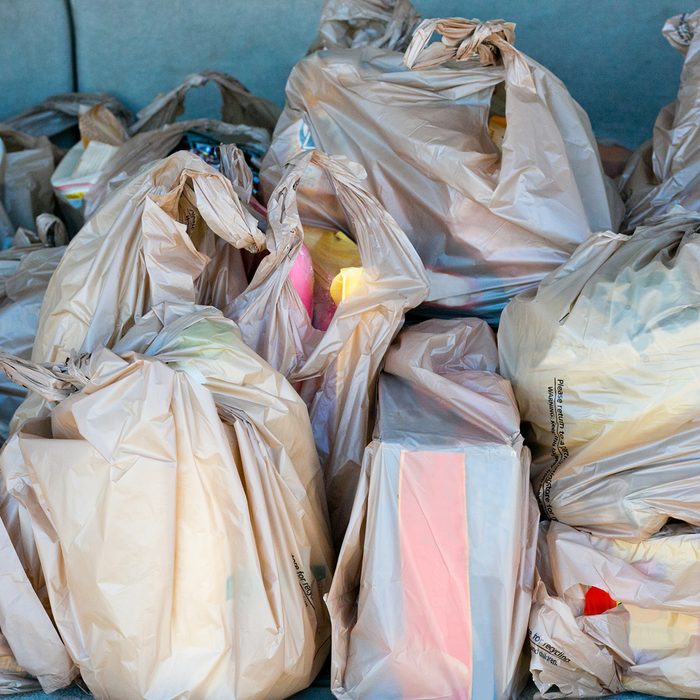
Recycle Carefully: Plastic Grocery Bags
Plastic grocery bags should never be put in your curbside recycling bin. They get tangled up in the equipment at recycling facilities and can actually shut down the entire plant. But don’t throw them in the regular garbage just yet! Recycle your grocery bags by taking them to a store drop-off location. Grocery stores and other retailers collect bags in large bins usually located at the front of the store. From there, the bags are sent to be recycled into plastic lumber for decking or park benches.

Recycle Carefully: Books
If you’re looking to get rid of a pile of books, your best bet might be a charity or secondhand bookstore. While most recycle centers accept paperback books, hardback books are a little more complicated. Hard covers are often made with cloth, leather or plastic and bound together with glue or string—making them non-recyclable.
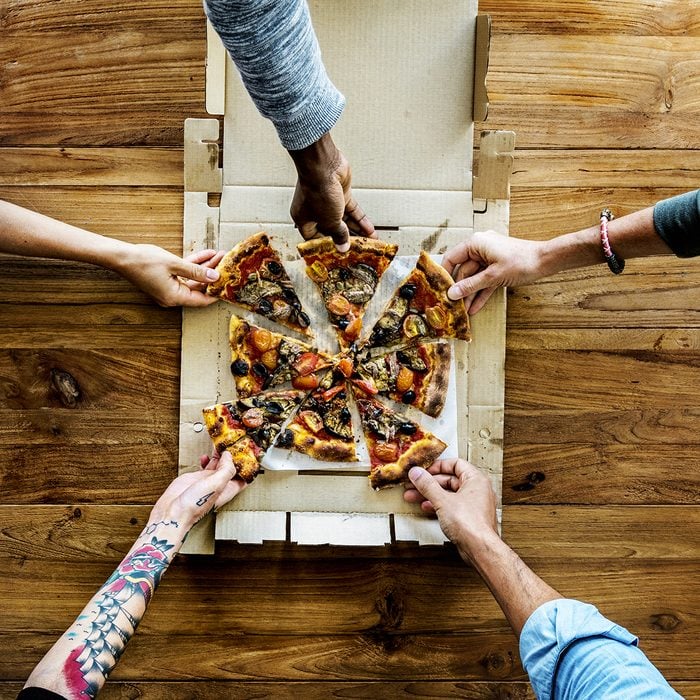
Don’t Recycle: Pizza Boxes
Pizza boxes are made from corrugated cardboard, which is recyclable—but the problem is the grease. Once the box gets soaked with pizza grease and cheese, it cannot be recycled because it contaminates the recycling process when the cardboard is turned into pulp. So the next time you order a large thin crust with extra pepperoni, you’ll have to chuck the box in your regular trash.
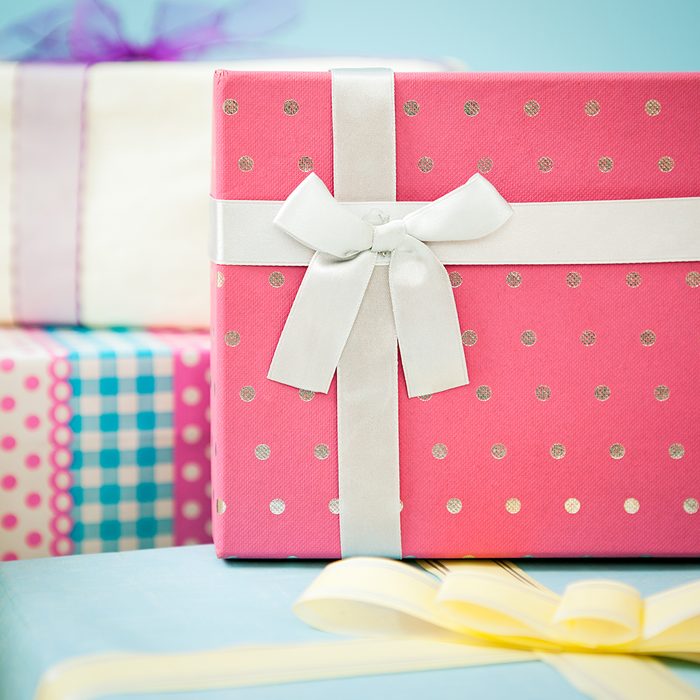
Don’t Recycle: Wrapping Paper
The next time you reach for a new roll of wrapping paper, think about this—approximately 4.6 million pounds of wrapping paper is produced in the U.S. each year, and about 2.3 million pounds ends up in landfills. That shiny, glittery wrapping paper is laminated with plastic, foil or other non-paper materials; making it non-recyclable. The exceptions are 100% paper wrapping paper and pre-recycled wrapping paper.
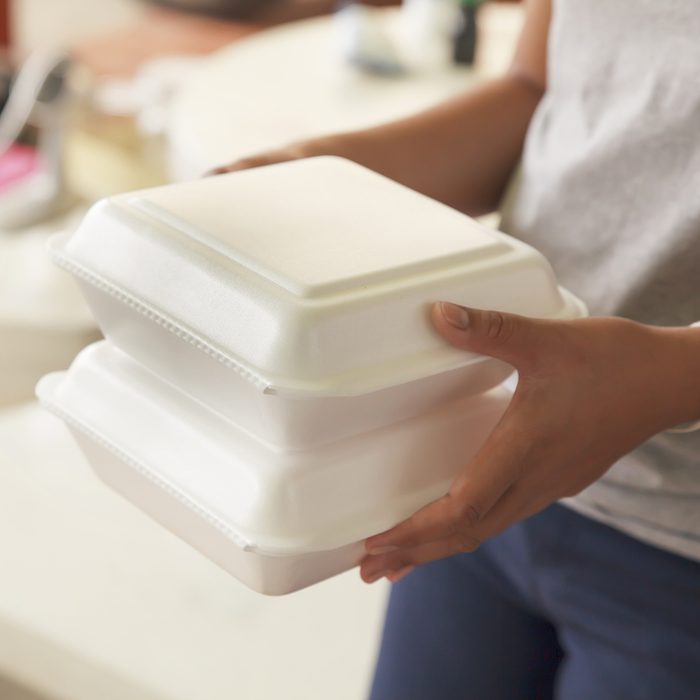
Don’t Recycle: Styrofoam
That cushy white material often used to make take-out containers is actually expanded polystyrene (EPS), but is commonly referred to as styrofoam. EPS is not recyclable or biodegradable and can sit in landfills for centuries.
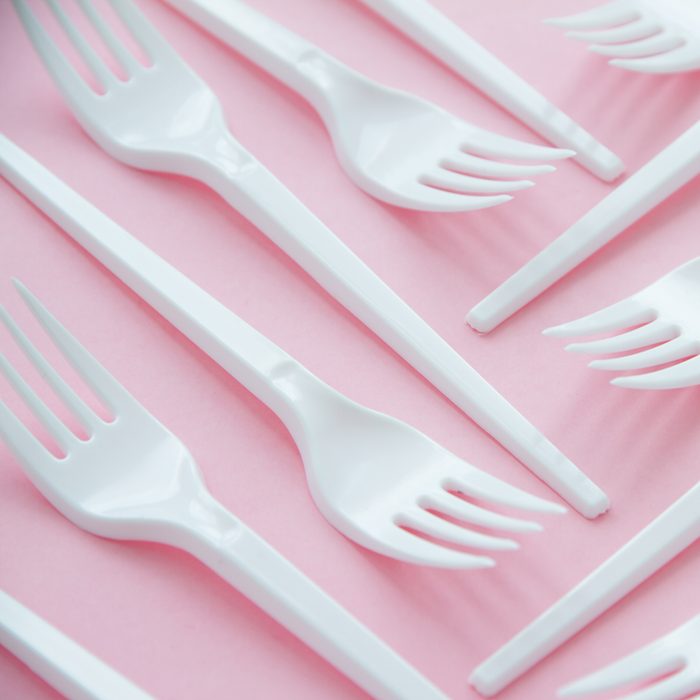
Don’t Recycle: Plastic Utensils
Disposable utensils are made of plastic and plastic is recyclable—so throw them in the recycling bin, right? Wrong. Unfortunately, plastic utensils are not recyclable. Plastic utensils are often made with #6 plastic which is not a cost-effective plastic to recycle, so many recycling centers do not accept them. The other problem is the shape of the utensils; sharp plastic forks and knives can jam recycling machinery.
Did you know you need to keep the cap on when recycling plastic bottles? Here’s why.

Don’t Recycle: Pet Food Bags
If you buy bags of food for Mr. Whiskers or Rover, you can’t recycle the packaging. The pet food bags are made of paper, but are usually reinforced with a plastic lining. Keep this in mind: If you can’t tear the bag with your hands, it’s probably not recyclable. Next, check out the items you didn’t know you could compost.
——
